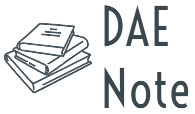92
Are you looking for the latest DAE Mechanical Third Year Curriculum Course Syllabus?
You’re in the right place! This guide provides a complete course outline to help students understand the subjects covered in the Third Year of the Diploma of Associate Engineering (DAE) in Mechanical.
Course Table for DAE Mechanical Third Year Curriculum
| Course Code | Course Title | Theory (T) | Practical (P) | Credits (C) |
|---|---|---|---|---|
| GEN 311 | Islamiat / Pakistan Studies | 1 | 0 | 1 |
| IMH 301 | Industrial Management & Human Relations | 1 | 0 | 1 |
| MECH 302 | Fluid Mechanics & Hydraulic Machines | 1 | 3 | 2 |
| MECH 313 | Applied Thermodynamics | 2 | 3 | 3 |
| MECH 321 | Industrial Planning & Production Methods | 1 | 0 | 1 |
| MECH 333 | Machine Design & Analysis | 2 | 3 | 3 |
| MECH 363 | Tool & Mould Design | 2 | 3 | 3 |
| MECH 332 | Materials Testing & Heat Treatment | 1 | 3 | 2 |
| MECH 354 | Workshop Practice – III | 2 | 6 | 4 |
| MECH 352 | CAD / CAM | 1 | 3 | 2 |
| MECH 372 | CNC Machines | 1 | 3 | 2 |
Check out Mechanical Third Year subjects for details and free PDF notes.
Download the DAE Mechanical Third Year Curriculum PDF
For complete details, visit the official PBTE website for the latest syllabus and updates.
